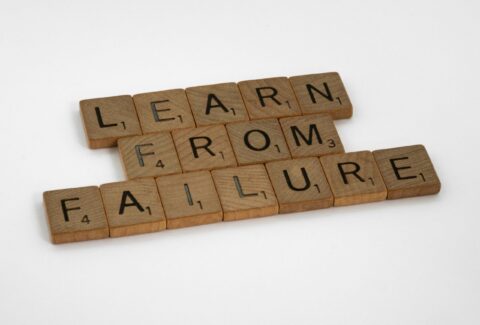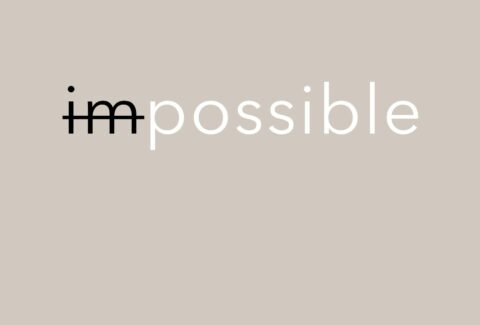The Power of Kindness: Coaching Your Clients to Embrace Self-Love and Compassion
In today’s world, where high expectations and constant comparisons are the norm, the importance of kindness—especially self-kindness—can’t be overstated. Acts of kindness towards ourselves are not only emotionally nourishing but also have a profound impact on our brains. Encouraging clients to adopt self-compassion and kindness can be transformative, especially when these practices are grounded in neuroscience.
Our Founder, Neuropsychologist Joseph McClendon III, has a simple yet effective formula for self-kindness. Before we dive in, he has one essential instruction for you and your clients: approach this practice sincerely and slowly. Take a moment with each sentence in the following statement:
“No one can do everything, but everyone can do something. Kindness is that one something that EVERYONE can do. Start with yourself and then spread it to others. Do your part every day, and your part will take care of you. You’re welcome. I love you.”
This formula highlights a crucial element often overlooked in self-help and coaching circles: the power of starting with yourself. Let’s explore why this principle is so important, and how brain science supports it.
The Neuroscience of Kindness and Self-Compassion
Kindness, both given and received, has measurable effects on the brain. When we engage in acts of kindness, we release oxytocin, a “feel-good” hormone that helps reduce stress, promote relaxation, and foster a sense of connection. This is particularly powerful in acts of self-kindness, where self-directed oxytocin release can counteract the stress response, lower blood pressure, and improve overall well-being.
Another key hormone involved is serotonin, which is boosted when we perform positive actions or affirmations, especially if those actions are directed toward ourselves. For clients who struggle with self-criticism, learning to release serotonin through affirmations and self-kindness exercises can be a crucial step in reprogramming negative thought patterns.
Practices like positive affirmations and mirror work, where individuals make eye contact with themselves while speaking kindly, also activate the brain’s mirror neuron system. Mirror neurons are the brain’s way of fostering empathy and connection. When a client smiles at themselves in the mirror and says something compassionate like, “[Your Name], I love you,” their brain registers this self-directed kindness similarly to how it would if someone else were saying it. This process strengthens self-compassion and self-respect over time.
Why “Start with Yourself” Matters So Much
As Joseph McClendon III emphasizes, self-kindness is the foundation of a compassionate life. This might sound counterintuitive to those who have been raised to believe that kindness should be directed outward first. But neuroscience suggests that people who practice self-compassion are better equipped to show genuine kindness to others. This is because when we’re harsh with ourselves, we tend to extend that same criticism outward. Alternatively, when clients practice self-love, their empathy and patience for others increase.
Repeated acts of self-compassion also help with the brain’s process of neuroplasticity. Neuroplasticity is the brain’s ability to reorganize itself by forming new neural connections. When clients repeatedly affirm self-love and self-kindness, they’re wiring their brains to adopt a compassionate mindset more naturally. Over time, they can reduce the strength of negative, self-critical neural pathways and build new, positive connections. The result? A brain that’s more inclined towards kindness, resilience, and self-assuredness.
Daily Practice: Starting the Day with Self-Love
One of the most powerful exercises in Joseph’s formula is the morning mirror practice, which encourages clients to start their day with intentional self-compassion. It’s simple: make eye contact in the mirror, smile, and repeat out loud five times, “[Your Name], I love you.” This exercise may feel strange at first, but it taps into essential brain processes.
By looking in the mirror and saying “I love you,” clients are engaging the visual and auditory processing centers, as well as memory networks, reinforcing positive self-perceptions. This practice, especially when repeated consistently, strengthens the neural pathways associated with self-esteem. It’s similar to muscle memory in physical exercise—the more you repeat it, the stronger it becomes. For clients, this can create a robust foundation of self-worth that supports their broader personal and professional goals.
The Ripple Effect: How Self-Kindness Leads to Broader Change
When clients practice self-kindness, they often notice that this inner compassion begins to extend outward naturally. Through a process called emotional contagion, positive emotions like kindness, joy, and gratitude can spread to others, creating a ripple effect. When clients feel secure in their own self-worth, they’re more likely to extend understanding and patience to those around them.
Research on kindness also suggests that it has an accumulative effect. Even small, daily acts of self-kindness can lead to lasting improvements in mood, outlook, and stress resilience. Over time, clients who practice self-love may become more resilient in the face of challenges, as they have a steady internal foundation to lean on.
How to Incorporate Self-Kindness into Your Coaching Practice
As a coach, you can help clients integrate self-kindness into their lives by using some of the following approaches:
- Daily Affirmations: Encourage clients to start each day with affirmations in the mirror. Remind them that consistency is key—neuroplasticity is fueled by repetition.
- Gratitude Journaling with a Twist: Ask clients to keep a journal where they record not only what they’re grateful for but also what they appreciate about themselves. This helps reinforce self-acceptance.
- Weekly Self-Reflection: During sessions, invite clients to reflect on the kind things they did for themselves throughout the week. This helps them track progress and keep self-kindness top of mind.
- Visualization Exercises: Lead clients through visualization exercises where they imagine themselves accomplishing a goal with self-kindness and self-support. This reinforces positive neural patterns associated with self-belief.
- Positive Reframing: If clients struggle with self-criticism, encourage them to reframe negative thoughts. For example, changing “I’m not good at this” to “I’m learning and improving every day” can make a profound difference in their mindset.
Empowering Your Clients Through Self-Compassion
Self-kindness is more than a feel-good practice; it’s a fundamental aspect of mental health and emotional resilience, grounded in neuroscience. By encouraging clients to start with themselves, you’re helping them build a positive internal foundation that can lead to better relationships, increased resilience, and a more fulfilling life.
So, invite your clients to embrace the power of kindness today. Guide them in harnessing the brain science behind self-love and compassion, and watch as they become not only kinder to themselves but also more present, understanding, and compassionate with those around them. This ripple effect of kindness, beginning with the self, can create a lasting, positive impact in their lives and beyond.







